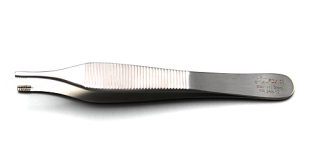The immunochemical fecal occult blood test, often known as the iFOBT, is the most preferred method of testing colorectal cancer. This test is simple to perform at home. For this examination, a sample is gathered from the feces using a brush, and then it is rubbed onto a specific card. The FOBT is more difficult to perform at home than this test. There are no limitations placed on food or drugs.
Immunochemical fecal occult blood test offers an additional choice for the early diagnosis of colorectal cancer. This test also detects malignant or precancerous polyps. It is also capable of detecting blood in the feces. It is not necessary to make certain dietary changes before this test, but certain drugs are avoided in this case. NSAIDs and certain blood-thinning medicines affect the test findings. Before the test, the doctor mentions the medications which are necessary to avoid.
iFOBT Accuracy
Instead of reporting results as a numerical value, the vast majority of iFOBTs indicate whether they are valid, positive, or negative.
A positive test, often known as an abnormal result, indicates that blood is present in the sample. Because illnesses that are not carcinogenic also cause blood in the stool, this symptom does not necessarily signal the presence of colorectal cancer. It is essential to discuss the results of the test with the attending physician if the results are positive. A colonoscopy to evaluate the wellness of the rectum and colon is recommended in this case by the doctor.
A negative result suggests there is no blood found. An invalid result indicates that the test is not completed correctly. It is possible to repeat the test. Before the test, it is essential to read all directions on the packaging attentively.
iFOBT Instructions
The following instructions are necessary for iFOBT:
- Two to three stool samples are required for this test.
- The applicator kit that is supplied in the package is used to collect the stool sample from the toilet.
- The sample is then placed in the given container or card.
- Mail the samples to the laboratory in the manner specified.
- The iFOBT is an easy examination that requires no major preparation. It does not necessitate sedation or a period of recovery.
- Since the iFOBT does not measure dietary hemoglobin, it is not necessary to eat anything special before the test.
- Medications do not affect test findings, and restricting their use is usually unnecessary unless the doctor directs.
After the test, there is no need for any downtime. The client is free to resume the normal activities. The majority of iFOBT kits require the client to deliver the specimen to the doctor or a lab for evaluation. It is essential to send the samples to the physician as quickly as possible once it is collected. A delay of several days impairs the accuracy of the test.
iFOBT Positive
The findings of the test are presented in a variety of formats, each of which is determined by factors like the type of iFOBT used and the location from which it is received. The results of tests that analyze the samples in a laboratory are usually available in just one to five days. The electronic medical chart also allows viewing the results.
A positive result for the iFOBT implies abnormal gastrointestinal bleeding. A positive result is not produced if the subject consumes blood from any other source, such as through the diet. A colonoscopy is also required if the test results are positive.
iFOBT vs Cologuard
Cologuard is used to check for occult hemoglobin in a person’s stool and DNA markers that are linked to colorectal neoplasia. A diagnostic colonoscopy is performed if the test shows a positive result, which indicates the existence of an advanced adenoma (AA). A negative result on the Cologuard test is not sufficient evidence to rule out the presence of cancer or an advanced adenoma. Patients who receive a negative screening result continue to take part in screening programs and use a method that is acceptable for them.
On the other hand, antibodies are used in the immunochemical fecal occult blood test to identify blood in the stool. Blood in the stool indicates colon cancer or other issues like polyps, ulcers, or hemorrhoids. In this case, samples are collected in special tubes or on specific cards, then delivered to a physician’s office or laboratory for analysis. Both tests are used for the same purpose but iFOBT is preferred by most physicians.
 Health & Care Information
Health & Care Information 


